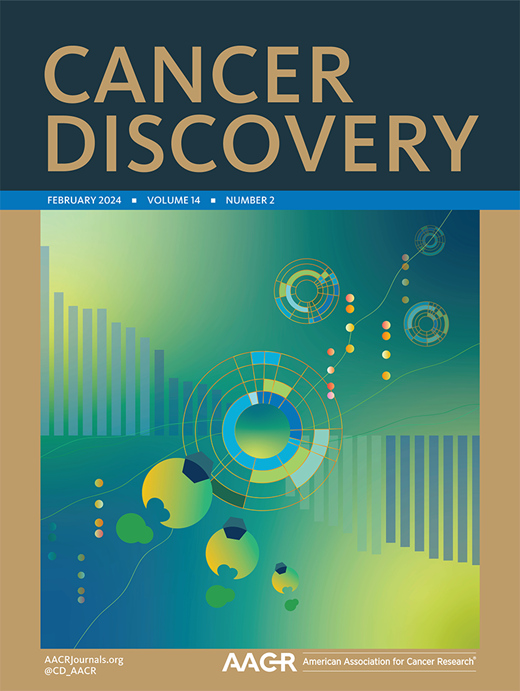肿瘤对RAS抑制的反应和抵抗
IF 33.3
1区 医学
Q1 ONCOLOGY
引用次数: 0
摘要
RAS抑制有可能改变许多患者的癌症治疗。RAS抑制剂治疗的前景正在迅速发展,目前已批准两种突变选择性KRAS抑制剂,以及多种其他突变选择性泛KRAS和泛RAS抑制剂正在开发中。然而,单药治疗的疗效受到原发和获得性耐药的限制。在本文中,我们回顾了肿瘤中RAS抑制的临床前和临床数据,并描述了多种耐药的遗传和非遗传机制。此外,我们强调了未来设计合理联合治疗策略的机会,最终需要克服耐药性并提高这些有希望的治疗方法的疗效。意义:RAS抑制剂在多种癌症类型中显示出早期疗效,但临床获益受到获得性耐药的限制。开发具有最佳效力、选择性和药代动力学特性的同类最佳抑制剂,以及有效和耐受的联合疗法,将需要克服耐药性并最大化ras靶向治疗的临床效果。本文章由计算机程序翻译,如有差异,请以英文原文为准。
Response and Resistance to RAS Inhibition in Cancer
RAS inhibition has the potential to transform cancer treatment for many patients. The landscape of RAS inhibitor therapies is rapidly evolving, with two mutant-selective KRAS inhibitors now approved and multiple other mutant-selective, pan-KRAS, and pan-RAS inhibitors in development. However, monotherapy efficacy has been limited by primary and acquired resistance. In this article, we review preclinical and clinical data on RAS inhibition in cancer and describe multiple genetic and nongenetic mechanisms of resistance. Moreover, we highlight future opportunities for the design of rational combination therapy strategies, which will ultimately be needed to overcome resistance and enhance the efficacy of these promising treatments. Significance: RAS inhibitors have shown early evidence of efficacy in multiple cancer types, but clinical benefit is limited by acquired resistance. Development of best-in-class inhibitors, with optimal potency, selectivity, and pharmacokinetic properties, as well as effective and tolerable combination therapies will be needed to overcome resistance and maximize the clinical impact of RAS-targeted therapy.
求助全文
通过发布文献求助,成功后即可免费获取论文全文。
去求助
来源期刊

Cancer discovery
ONCOLOGY-
CiteScore
22.90
自引率
1.40%
发文量
838
审稿时长
6-12 weeks
期刊介绍:
Cancer Discovery publishes high-impact, peer-reviewed articles detailing significant advances in both research and clinical trials. Serving as a premier cancer information resource, the journal also features Review Articles, Perspectives, Commentaries, News stories, and Research Watch summaries to keep readers abreast of the latest findings in the field. Covering a wide range of topics, from laboratory research to clinical trials and epidemiologic studies, Cancer Discovery spans the entire spectrum of cancer research and medicine.
 求助内容:
求助内容: 应助结果提醒方式:
应助结果提醒方式:


